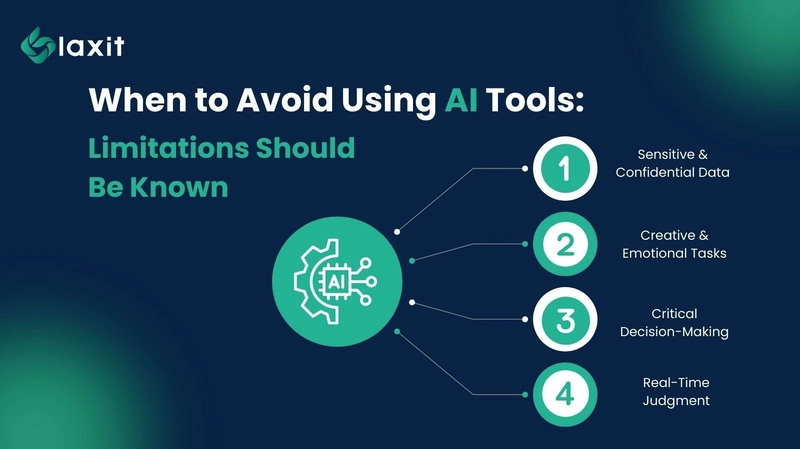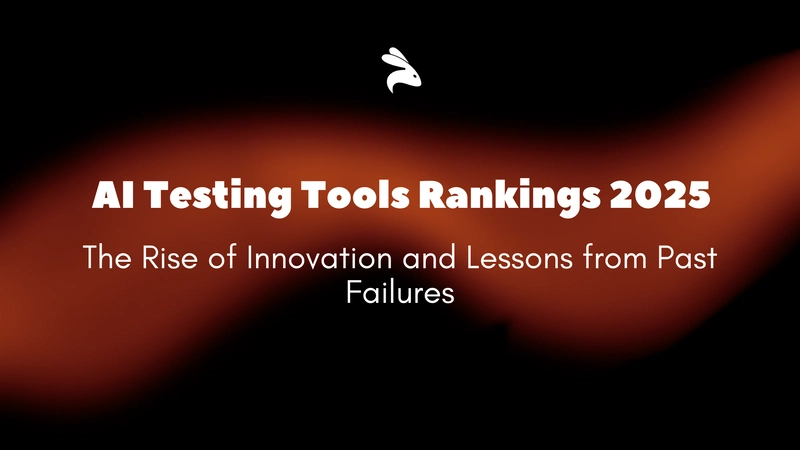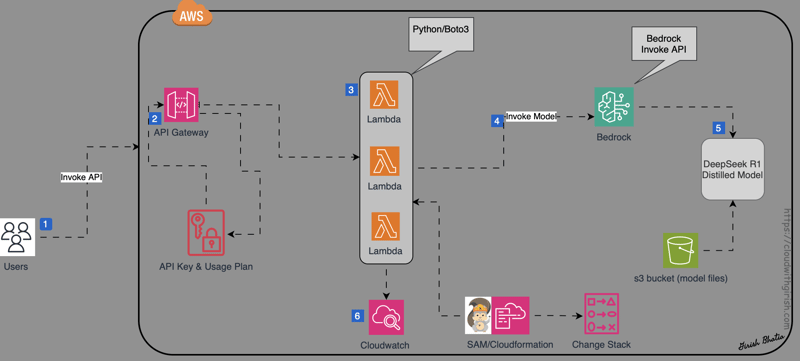When To Avoid Using AI Tools: Must Know Their Limits
AI is everywhere! It helps us write emails, plan trips, and even run businesses. But let’s be real: AI isn’t perfect. There are times when using AI might not be the best choice. So, let’s talk about when you should think twice before relying on AI tools and why it’s important to understand their limits. When You Need Human Judgment AI is great at crunching numbers but can’t replace human intuition and emotions. Some things need a human touch! Medical Diagnoses: Doctors must make the final call when it comes to a patient’s health. AI can assist, but it should not be trusted blindly. Legal Matters: AI can summarize laws, but a lawyer needs to interpret them correctly. Hiring Employees: While AI can scan resumes, a human manager should assess soft skills and personality traits. When Accuracy Matters AI can make mistakes, and blindly trusting it might not end well. Financial Calculations: AI-powered accounting tools may miss details that a human accountant wouldn’t. News and Information: AI tends to pull content from existing sources but may not always be accurate or up-to-date. When Creativity Matters AI tools can generate content, but they lack originality and emotions. Art and Design: Human artists can incorporate uniqueness and feeling into their work, while AI mimics existing styles. Writing Stories: AI might help with grammar, but storytelling needs human emotions and experiences. When Privacy and Security Matter AI tools can put your privacy at risk. Personal Chats: AI chatbots may store or analyze conversations, raising privacy concerns. Business Data: Feeding confidential company information into AI tools could lead to data leaks. Facial Recognition: Some AI-powered systems can be misused for surveillance, which raises ethical concerns. When Common Sense is Needed AI follows logic, but it doesn’t have human common sense. Driving Assistance: AI-powered cars may help with navigation, but a human driver must be ready for unexpected situations. Customer Support: AI chatbots try to answer questions, but sometimes, a human representative needs to handle complex issues. AI Limitations: Facts & Figures Bias in AI: In 2018, Amazon scrapped an AI hiring tool because it showed bias against women. Error Rates: A 2021 MIT study found that facial recognition AI had a 34% error rate for dark-skinned individuals. Creativity Gap: Research suggests that only 6% of users find AI-generated content as engaging as human-written pieces. Everyday Examples: When AI Fails Autocorrect Fails: Have you ever sent a text that made no sense? That’s AI struggling with language. Navigation Errors: GPS apps might suggest a weird route because they rely on old data. Online Translations: AI translation tools can create awkward or incorrect phrases. Find the Right Balance AI is an amazing tool, but it should not be used in every situation. Knowing its limits can help us make smarter choices. In the future, human intelligence, creativity, and judgment will always be irreplaceable. As the saying goes, “Don’t put all your eggs in one basket.” AI is helpful, but it’s not a substitute for human expertise.
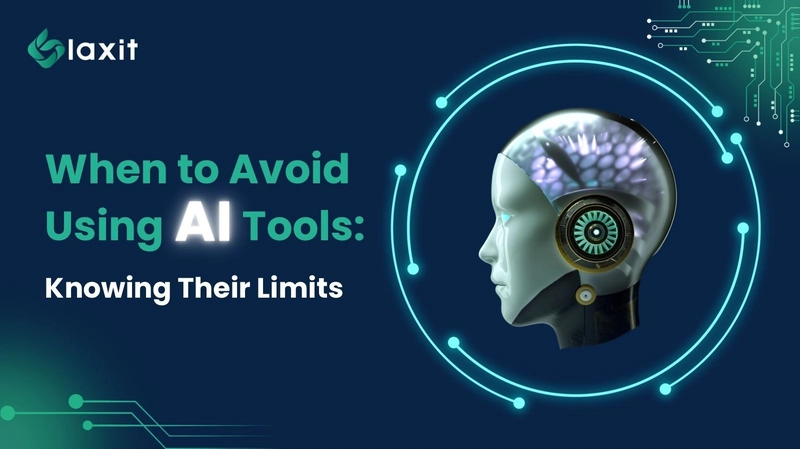
AI is everywhere! It helps us write emails, plan trips, and even run businesses. But let’s be real: AI isn’t perfect. There are times when using AI might not be the best choice. So, let’s talk about when you should think twice before relying on AI tools and why it’s important to understand their limits.
When You Need Human Judgment
AI is great at crunching numbers but can’t replace human intuition and emotions. Some things need a human touch!
Medical Diagnoses: Doctors must make the final call when it comes to a patient’s health. AI can assist, but it should not be trusted blindly.
Legal Matters: AI can summarize laws, but a lawyer needs to interpret them correctly.
Hiring Employees: While AI can scan resumes, a human manager should assess soft skills and personality traits.
When Accuracy Matters
AI can make mistakes, and blindly trusting it might not end well.
Financial Calculations: AI-powered accounting tools may miss details that a human accountant wouldn’t.
News and Information: AI tends to pull content from existing sources but may not always be accurate or up-to-date.
When Creativity Matters
AI tools can generate content, but they lack originality and emotions.
Art and Design: Human artists can incorporate uniqueness and feeling into their work, while AI mimics existing styles.
Writing Stories: AI might help with grammar, but storytelling needs human emotions and experiences.
When Privacy and Security Matter
AI tools can put your privacy at risk.
Personal Chats: AI chatbots may store or analyze conversations, raising privacy concerns.
Business Data: Feeding confidential company information into AI tools could lead to data leaks.
Facial Recognition: Some AI-powered systems can be misused for surveillance, which raises ethical concerns.
When Common Sense is Needed
AI follows logic, but it doesn’t have human common sense.
Driving Assistance: AI-powered cars may help with navigation, but a human driver must be ready for unexpected situations.
Customer Support: AI chatbots try to answer questions, but sometimes, a human representative needs to handle complex issues.
AI Limitations: Facts & Figures
Bias in AI: In 2018, Amazon scrapped an AI hiring tool because it showed bias against women.
Error Rates: A 2021 MIT study found that facial recognition AI had a 34% error rate for dark-skinned individuals.
Creativity Gap: Research suggests that only 6% of users find AI-generated content as engaging as human-written pieces.
Everyday Examples: When AI Fails
Autocorrect Fails: Have you ever sent a text that made no sense? That’s AI struggling with language.
Navigation Errors: GPS apps might suggest a weird route because they rely on old data.
Online Translations: AI translation tools can create awkward or incorrect phrases.
Find the Right Balance
AI is an amazing tool, but it should not be used in every situation. Knowing its limits can help us make smarter choices. In the future, human intelligence, creativity, and judgment will always be irreplaceable. As the saying goes, “Don’t put all your eggs in one basket.” AI is helpful, but it’s not a substitute for human expertise.




























![[Webinar] AI Is Already Inside Your SaaS Stack — Learn How to Prevent the Next Silent Breach](https://blogger.googleusercontent.com/img/b/R29vZ2xl/AVvXsEiOWn65wd33dg2uO99NrtKbpYLfcepwOLidQDMls0HXKlA91k6HURluRA4WXgJRAZldEe1VReMQZyyYt1PgnoAn5JPpILsWlXIzmrBSs_TBoyPwO7hZrWouBg2-O3mdeoeSGY-l9_bsZB7vbpKjTSvG93zNytjxgTaMPqo9iq9Z5pGa05CJOs9uXpwHFT4/s1600/ai-cyber.jpg?#)














































































































































![[The AI Show Episode 144]: ChatGPT’s New Memory, Shopify CEO’s Leaked “AI First” Memo, Google Cloud Next Releases, o3 and o4-mini Coming Soon & Llama 4’s Rocky Launch](https://www.marketingaiinstitute.com/hubfs/ep%20144%20cover.png)















































































































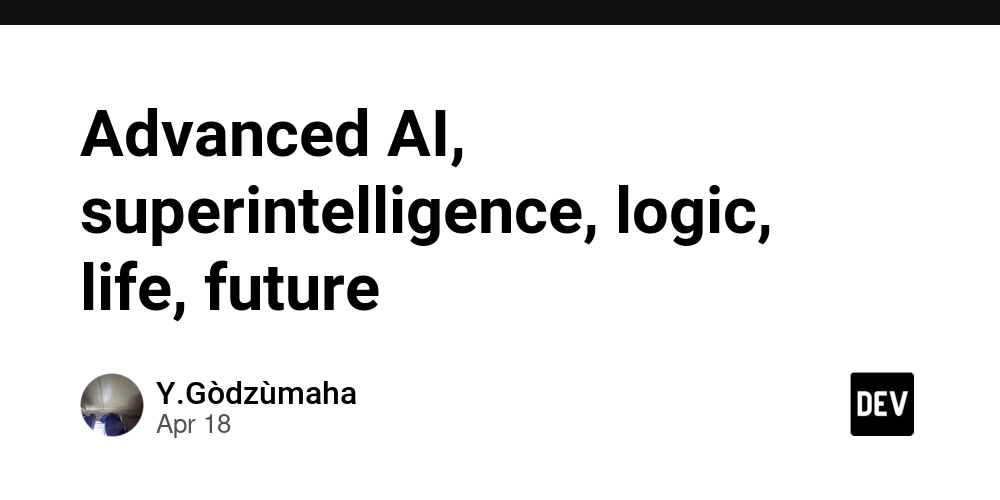
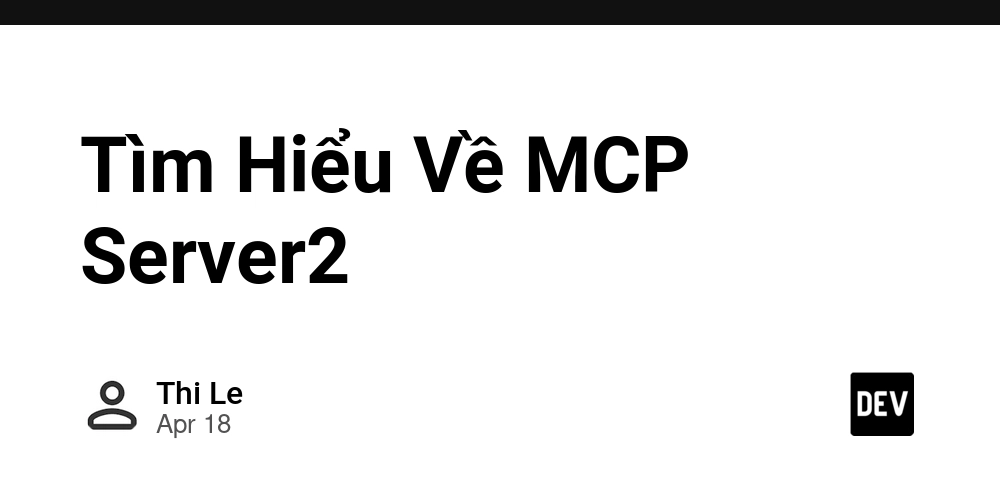

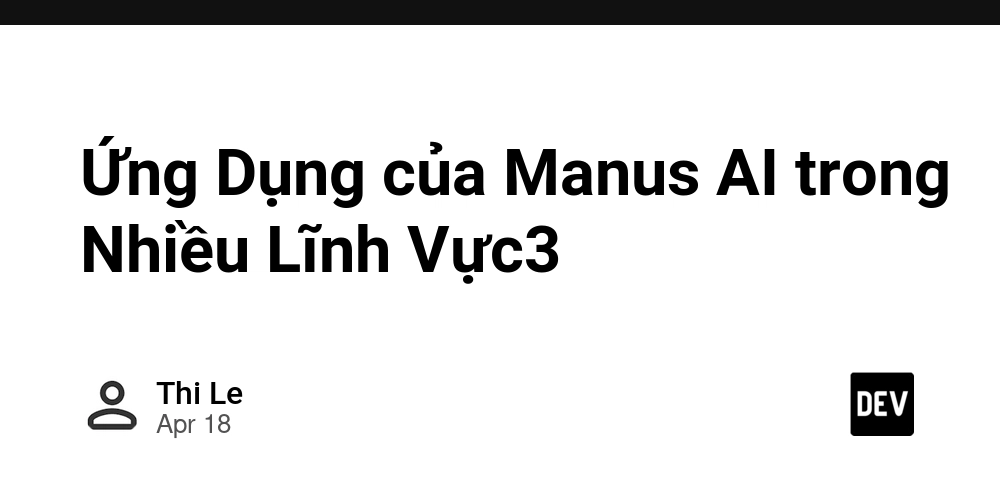

















































































![Rogue Company Elite tier list of best characters [April 2025]](https://media.pocketgamer.com/artwork/na-33136-1657102075/rogue-company-ios-android-tier-cover.jpg?#)








































































_Andreas_Prott_Alamy.jpg?width=1280&auto=webp&quality=80&disable=upscale#)






































































































![Apple Watch Series 10 Back On Sale for $299! [Lowest Price Ever]](https://www.iclarified.com/images/news/96657/96657/96657-640.jpg)
![EU Postpones Apple App Store Fines Amid Tariff Negotiations [Report]](https://www.iclarified.com/images/news/97068/97068/97068-640.jpg)
![Apple Slips to Fifth in China's Smartphone Market with 9% Decline [Report]](https://www.iclarified.com/images/news/97065/97065/97065-640.jpg)
































































































































